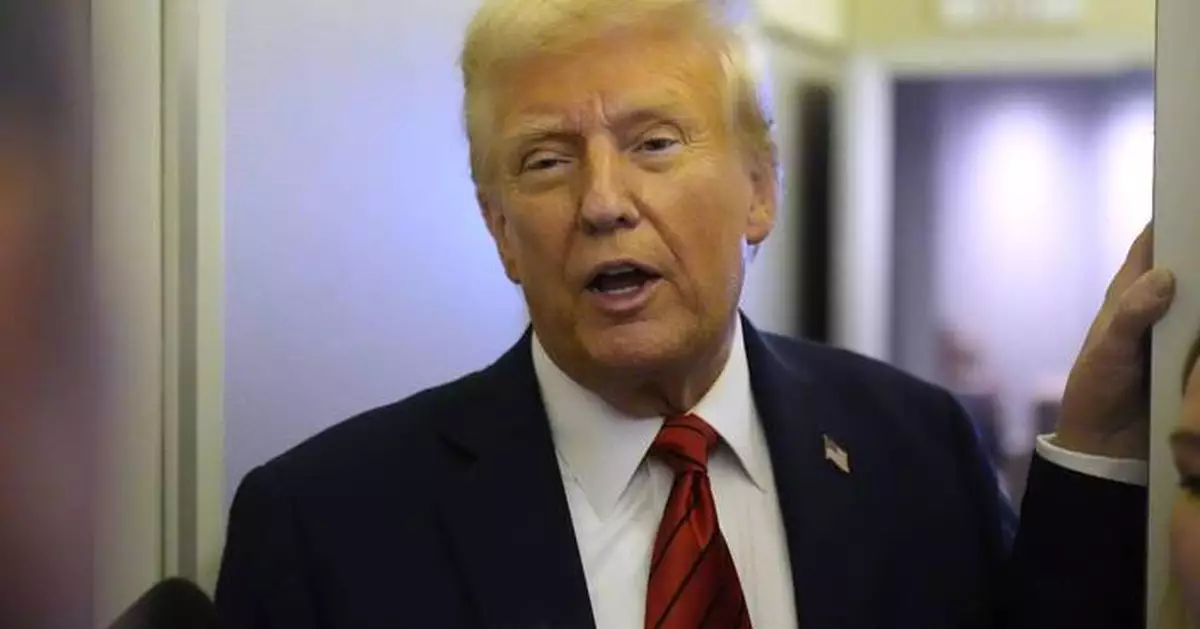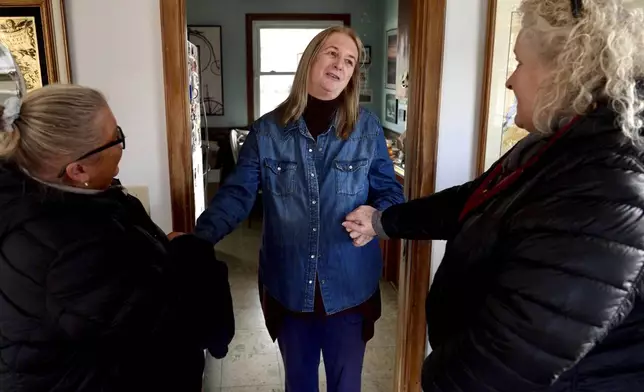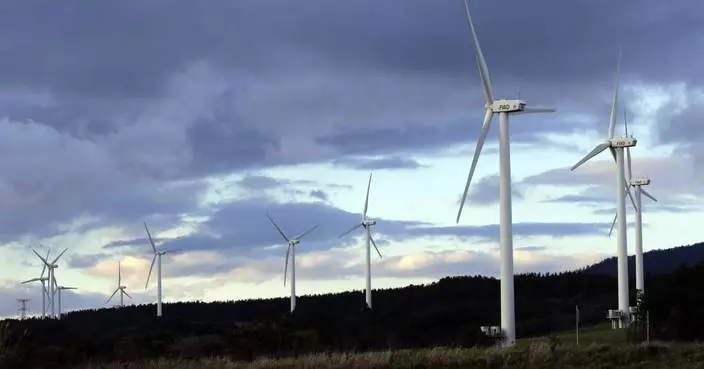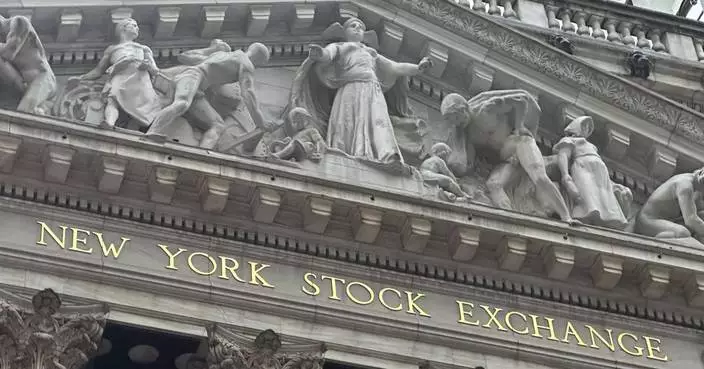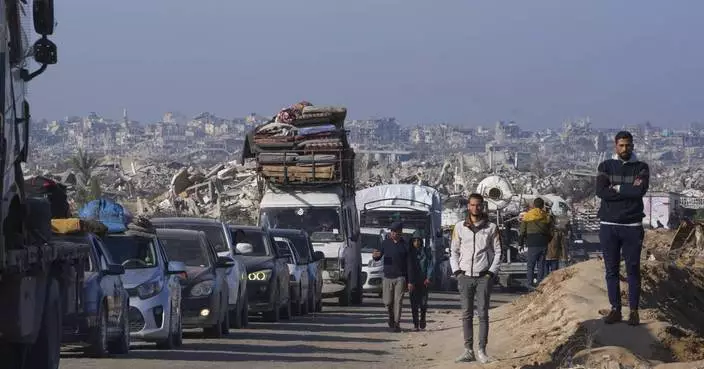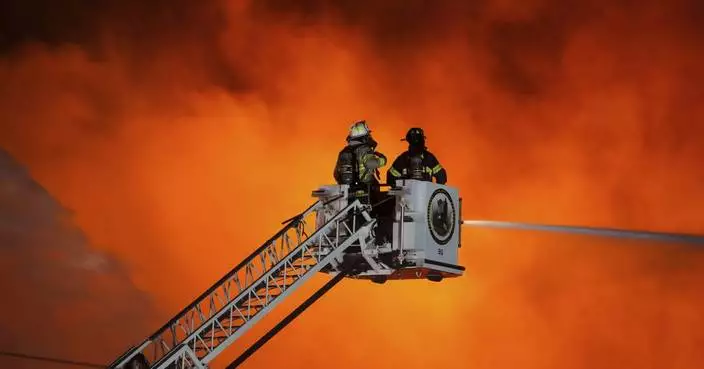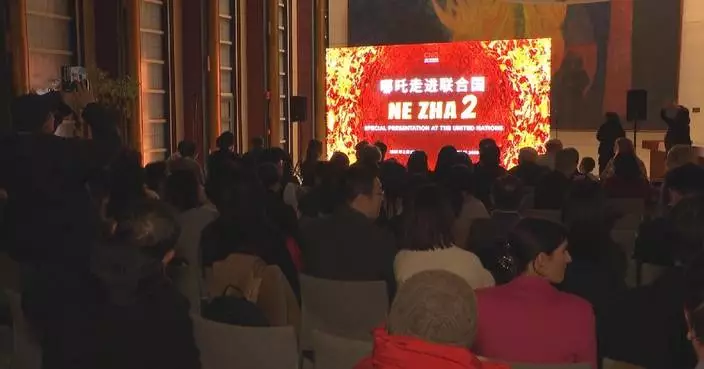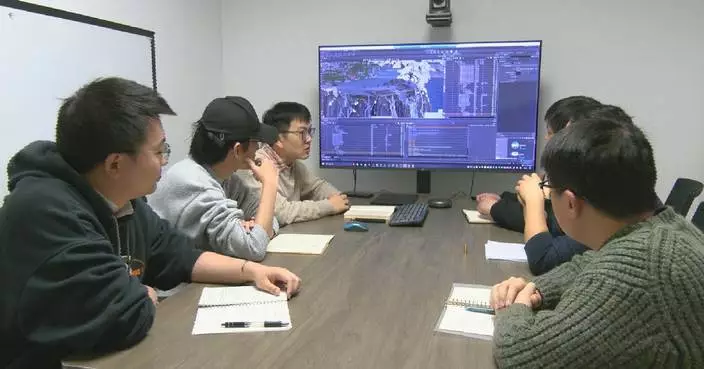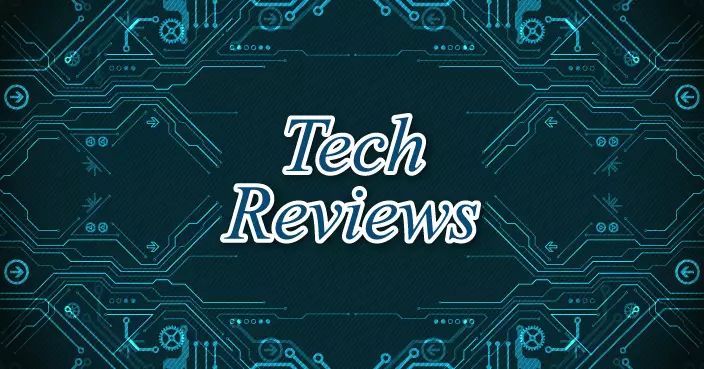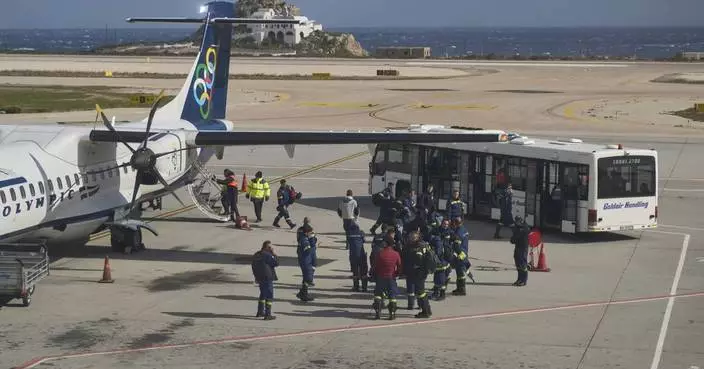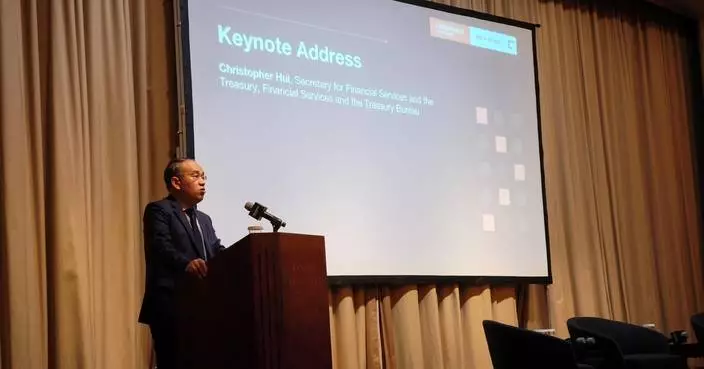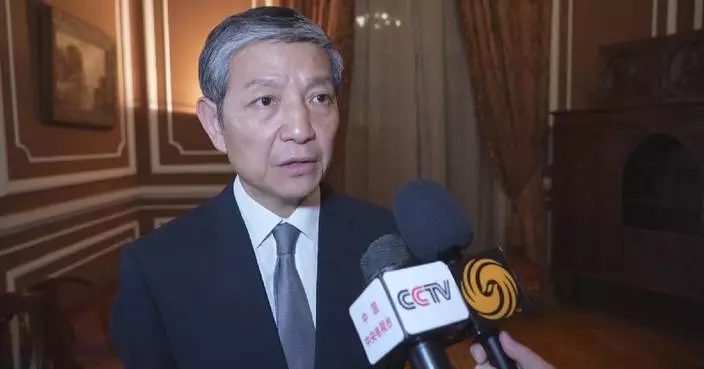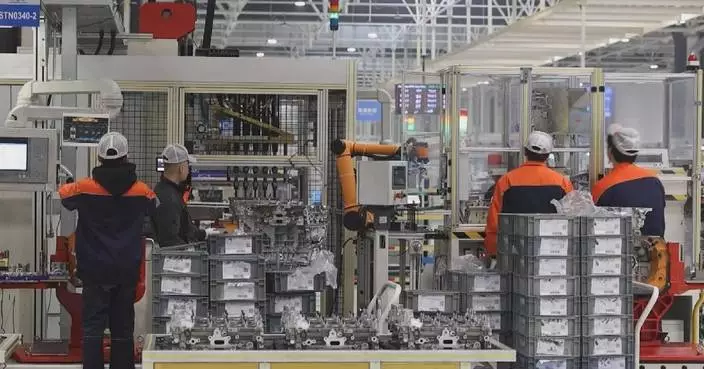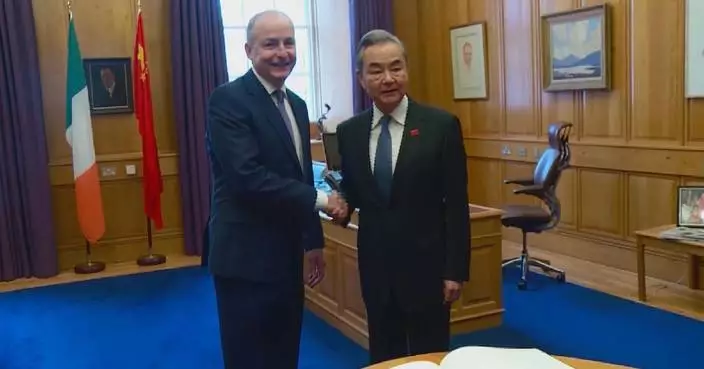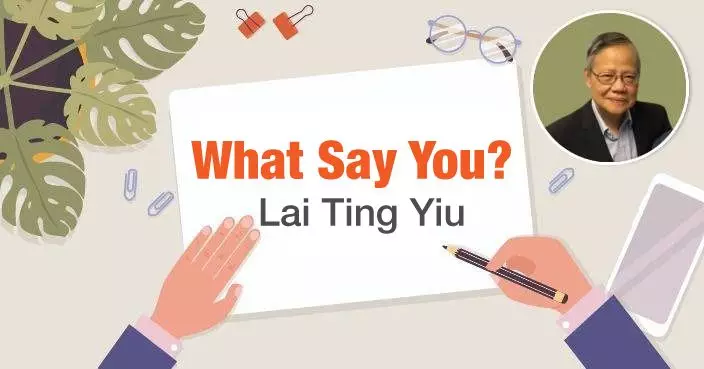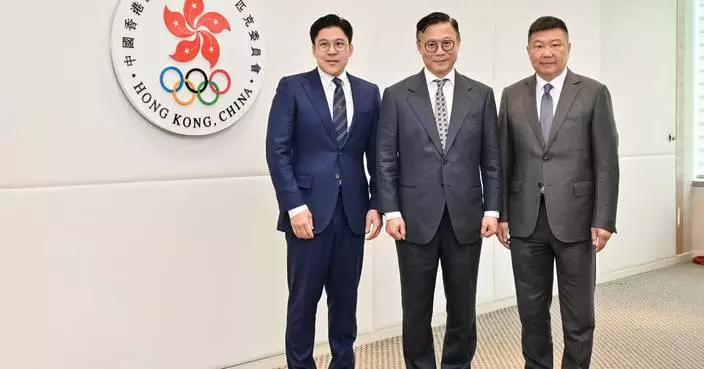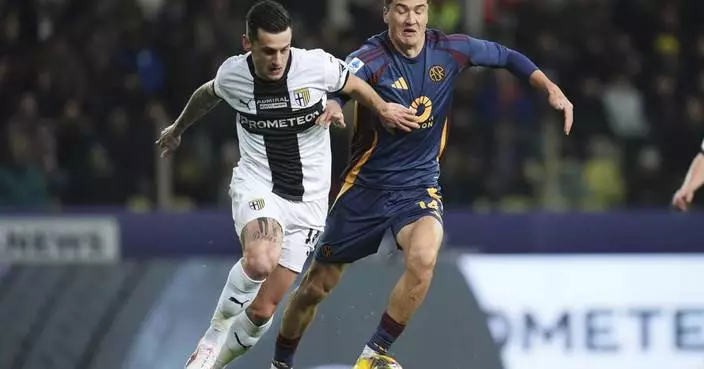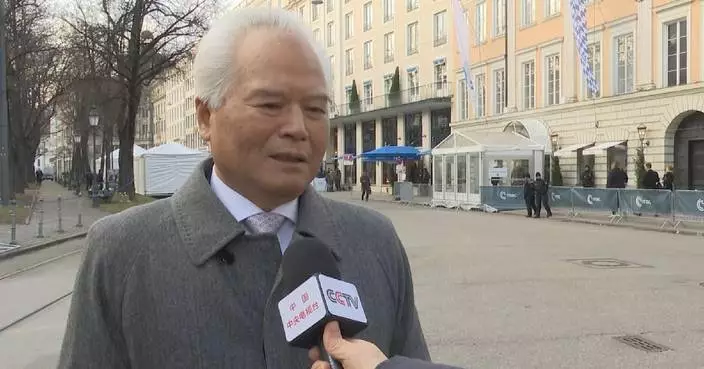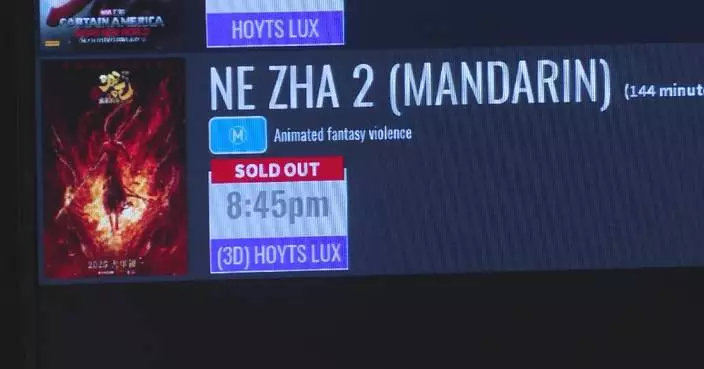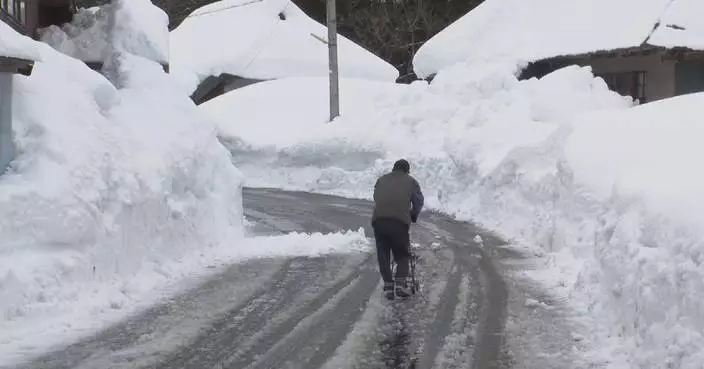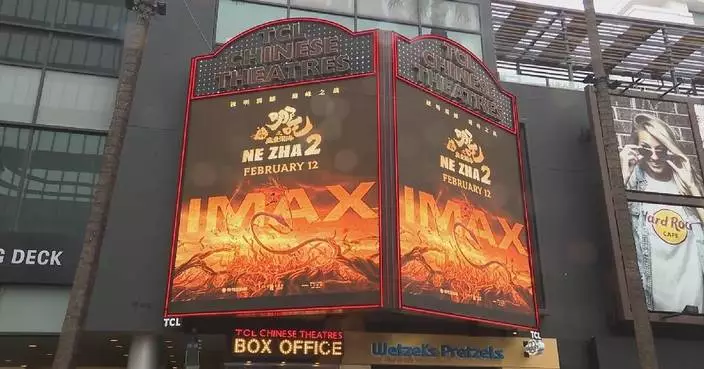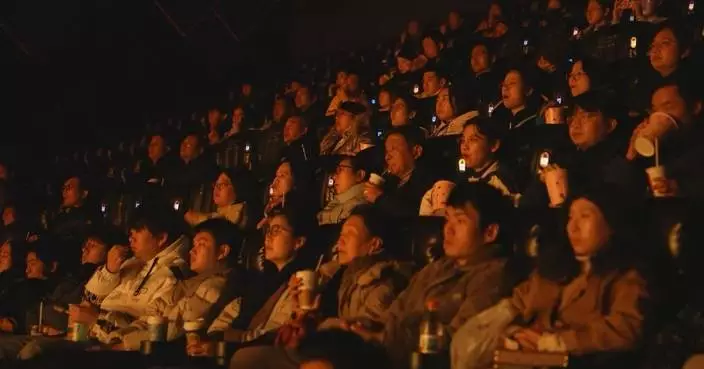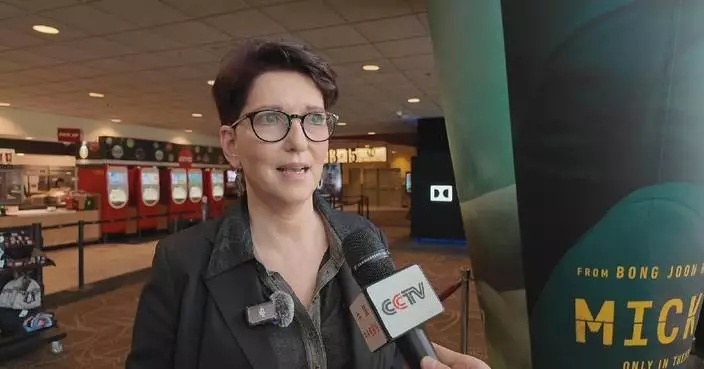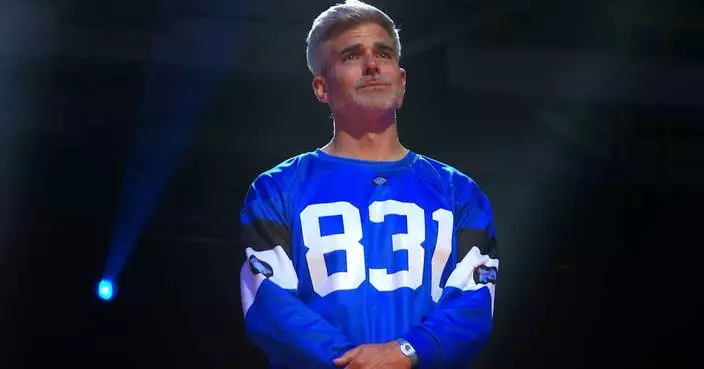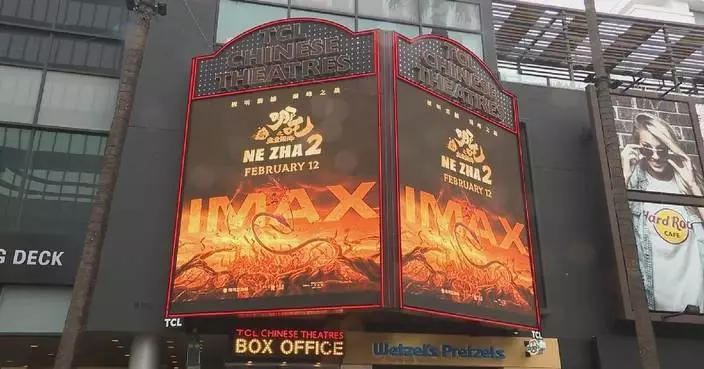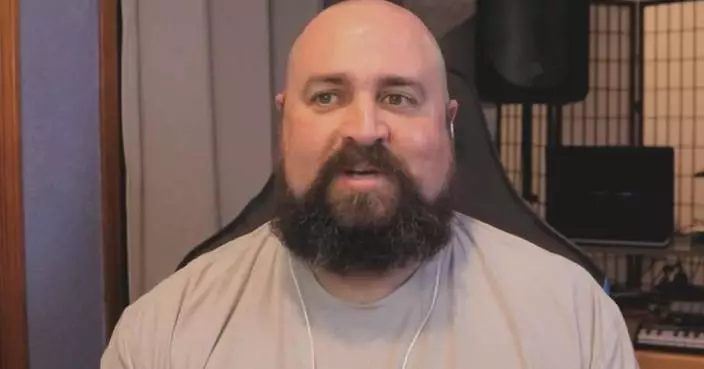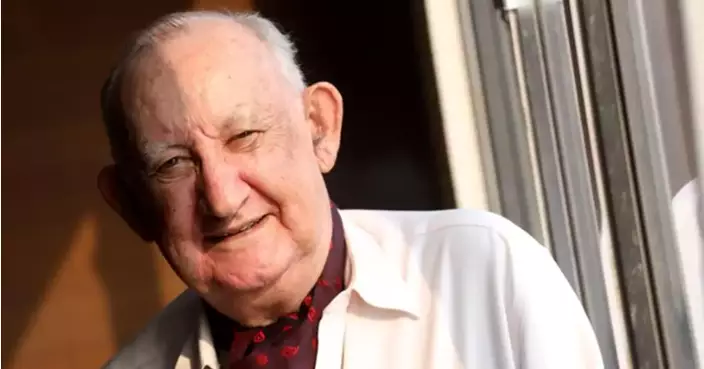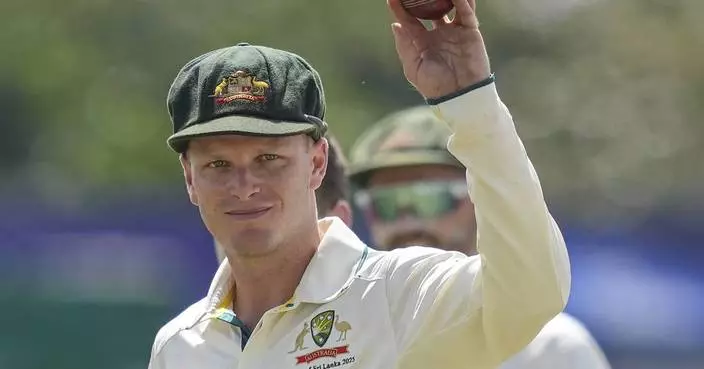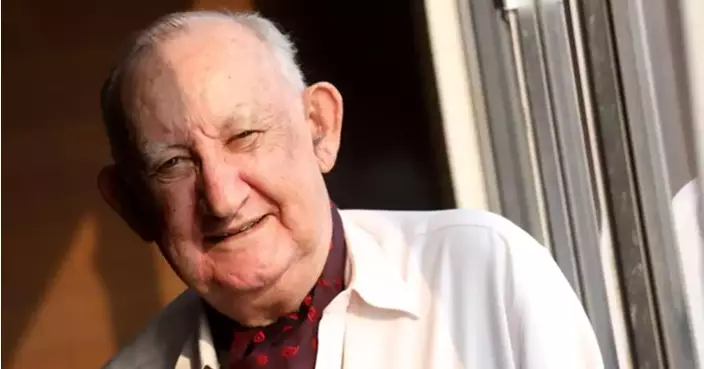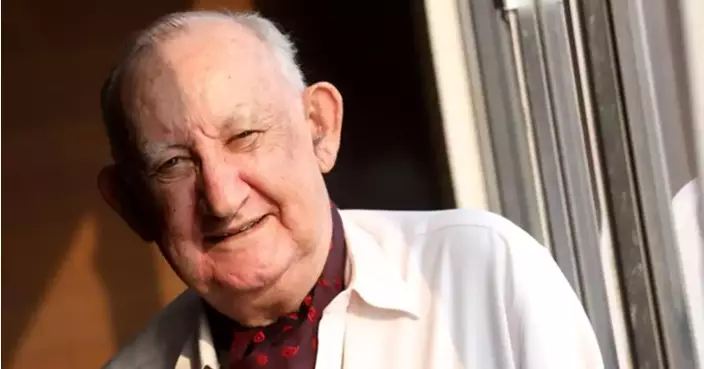WASHINGTON (AP) — President Donald Trump's budget office on Wednesday rescinded a memo freezing spending on federal loans and grants, less than two days after it sparked widespread confusion and legal challenges across the country.
The memo, which was issued Monday by the Office of Management and Budget, had frightened states, schools and organizations that rely on trillions of dollars from Washington.
Click to Gallery
White House press secretary Karoline Leavitt speaks with reporters at the White House, Wednesday, Jan. 29, 2025, in Washington. (AP Photo/Evan Vucci)
President Donald Trump speaks before signing the Laken Riley Act in the East Room of the White House, Wednesday, Jan. 29, 2025, in Washington. (AP Photo/Evan Vucci)
Barbara Teed unpacks a Meals on Wheels deliver for herself and her 30-year-old son Ryan, who has Down syndrome, on Wednesday, Jan. 29, 2025, in Bloomington, Minn. (AP photo/Mark Vancleave)
Bloomington and Eden Prairie Meals on Wheels Executive Director Wendy Vossen delivers meals for Barbara Teed and her 30-year-old son Ryan, who has Down syndrome, on Wednesday, Jan. 29, 2025, in Bloomington, Minn. (AP photo/Mark Vancleave)
Barbara Teed unpacks a Meals on Wheels deliver for herself and her 30-year-old son Ryan, who has Down syndrome, on Wednesday, Jan. 29, 2025, in Bloomington, Minn. (AP photo/Mark Vancleave)
Barbara Teed thanks Jan Orcutt and Wendy Vossen for delivering food for herself and her 30-year-old son Ryan, who has Down syndrome, on Wednesday, Jan. 29, 2025, in Bloomington, Minn. (AP photo/Mark Vancleave)
Barbara Teed unpacks a Meals on Wheels deliver for herself and her 30-year-old son Ryan, who has Down syndrome, on Wednesday, Jan. 29, 2025, in Bloomington, Minn. (AP photo/Mark Vancleave)
President Donald Trump speaks to reporters aboard Air Force One en route from Miami to Joint Base Andrews, Md., Monday, Jan. 27, 2025. (AP Photo/Mark Schiefelbein)
President Donald Trump speaks to reporters aboard Air Force One en route from Miami to Joint Base Andrews, Md., Monday, Jan. 27, 2025. (AP Photo/Mark Schiefelbein)
Administration officials said the pause was necessary to review whether spending aligned with Trump's executive orders on issues like climate change and diversity, equity and inclusion programs.
But on Wednesday, they sent out a two-sentence notice rescinding the original memo. The reversal was the latest sign that even with unified control of Washington, Trump’s plans to dramatically and rapidly reshape the government have limits.
Administration officials insisted that despite the confusion, their actions still had the intended effect by underscoring to federal agencies their obligations to abide by Trump’s executive orders.
“The Executive Orders issued by the President on funding reviews remain in full force and effect and will be rigorously implemented by all agencies and departments,” White House press secretary Karoline Leavitt said, blaming the confusion on the courts and news outlets, not the administration. “This action should effectively end the court case and allow the government to focus on enforcing the President’s orders on controlling federal spending.”
The vaguely worded order, legal pause and eventual cancellation left organizations confused and worried again about what might be next.
Nourishing Hope, which runs foods pantries, home meal delivery and an online food market in Chicago, gets roughly 20% of its food budget comes from the federal government. CEO Kellie O’Connell said the biggest issue when the memo surfaced was getting clear and accurate information so they could figure out how to plan for the coming months.
If their federal funds were frozen, O'Connell said, they could make it a few weeks. But the wider concern was the possible end of assistance, like food stamps, which would increase demand on her organization.
“If that were to significantly diminish or get eliminated, it will be nearly impossible for the charity food system to step up,” she said of food stamps. “It would be potentially catastrophic for our communities.”
On Tuesday, Trump administration officials said programs that provide direct assistance to Americans, including Medicare, Social Security, student loans and food stamps, would not be affected.
However, they sometimes struggled to provide a clear picture. Leavitt initially would not say whether Medicaid was exempted from the freeze, but the administration later clarified that it was.
The White House's change in direction caught Congress off guard, particularly Trump’s Republicans allies who had defended him throughout the brief saga.
“This is Donald Trump. He throws hand grenades in the middle of the room, and then cleans it up afterwards,” said Sen. Kevin Cramer of North Dakota. “I just think the guy’s a genius.”
Cramer acknowledged the initial memo may have generated too much political heat, with red and blue states raising alarms over the funding freeze. But the senator suggested Trump “maybe didn’t understand the breadth” of what had been proposed.
But Democrats said the White House had overreached beyond what Americans want.
“Most people voted for cheaper eggs,” said Sen. Martin Heinrich of New Mexico. “They did not vote for this chaos.”
The funding pause was scheduled to go into effect at 5 p.m. Tuesday. It was stayed by a federal judge until at least Monday after an emergency hearing requested by nonprofit groups that receive federal grants.
An additional lawsuit by Democratic state attorneys general was also pending, and a hearing was held Wednesday in federal court in Rhode Island. Chief Judge John J. McConnell said he was inclined to issue an order blocking any attempt at a funding pause, saying there was the possibility of “irreparable harm.”
After the initial memo was distributed Monday, federal agencies were directed to answer a series of yes or no questions about each program by Feb. 7. The questions included “does this program promote gender ideology?” and “does this program promote or support in any way abortion?”
Although Trump had promised to turn Washington upside-down if elected to a second term, the effects of his effort to pause funding were being felt far from the nation’s capital. Organizations like Meals on Wheels, which receives federal money to deliver food to the elderly, were worried about getting cut off. Even temporary interruptions in funding could cause layoffs or delays in public services.
Barbara Teed, 73, of Bloomington, Minnesota, said she felt “panic, absolute panic” when she learned the freeze could affect her.
Teed lives with her 38-year-old son, Ryan, who has Down syndrome. Both receive meals from Bloomington-Eden Prairie Meals On Wheels.
“This is sometimes my only meal of the day. So it’s really, really important to me,” said Teed.
Reynier Prieto, whose 5-year-old son, Liam, attends the Head Start program at Easterseals South Florida, said the program is helping address speech development issues so that Liam can hopefully attend public school next year.
“It’s the most important thing for our life right now,” Prieto said. “That’s the way that we can go out of our home and work, and we know that he’s in good hands.”
Losing a program like Head Start could be bad for many families, and government officials should take the time to examine each one that receives federal money, Prieto said.
“Programs like this, they need to review it and make sure that it’s not cut because this actually helps the community,” Prieto said.
Democratic critics of the order celebrated the memo's rescinding.
“This is an important victory for the American people whose voices were heard after massive pressure from every corner of this country," said Sen. Patty Murray of Washington. She said Trump had “caused real harm and chaos for millions.”
Senate Democratic leader Chuck Schumer of New York said, “Americans fought back and Donald Trump backed off."
Associated Press writers Sophia Tareen in Chicago, Mark Vancleave in Minneapolis, David Fischer in Miami and Michael Casey in Boston contributed to this report.
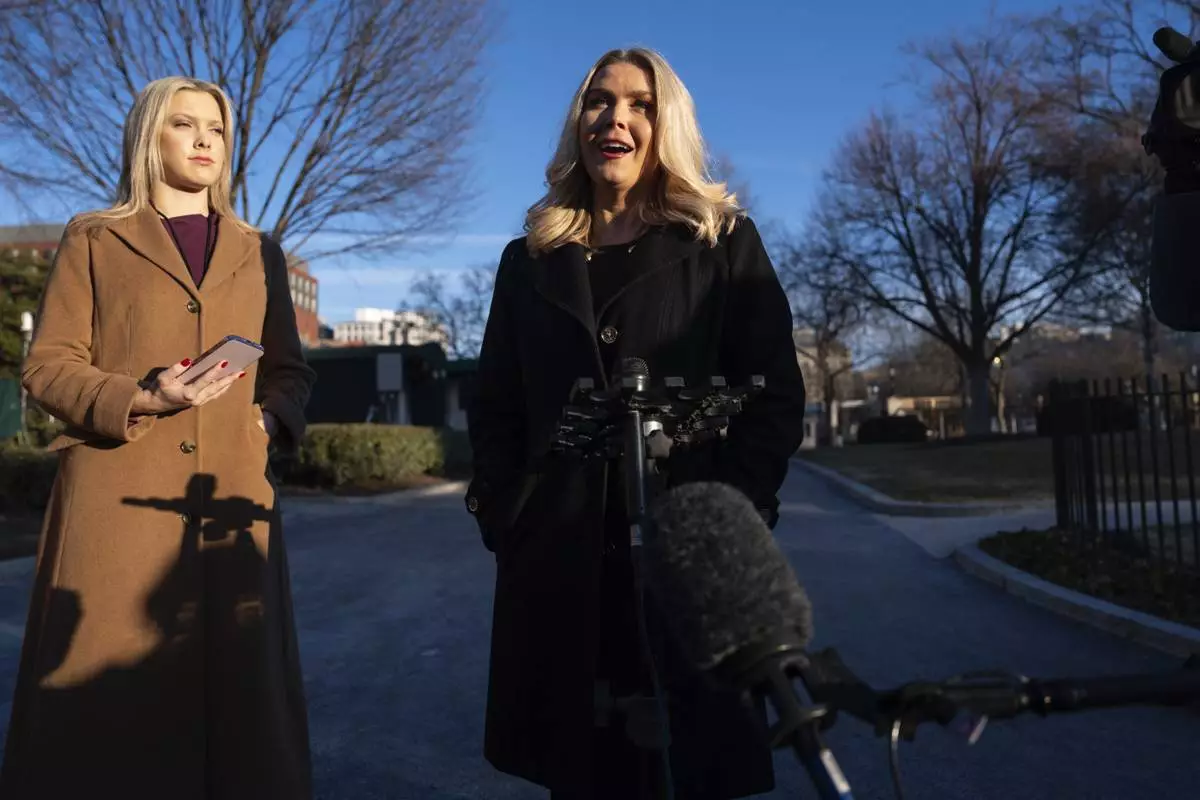
White House press secretary Karoline Leavitt speaks with reporters at the White House, Wednesday, Jan. 29, 2025, in Washington. (AP Photo/Evan Vucci)
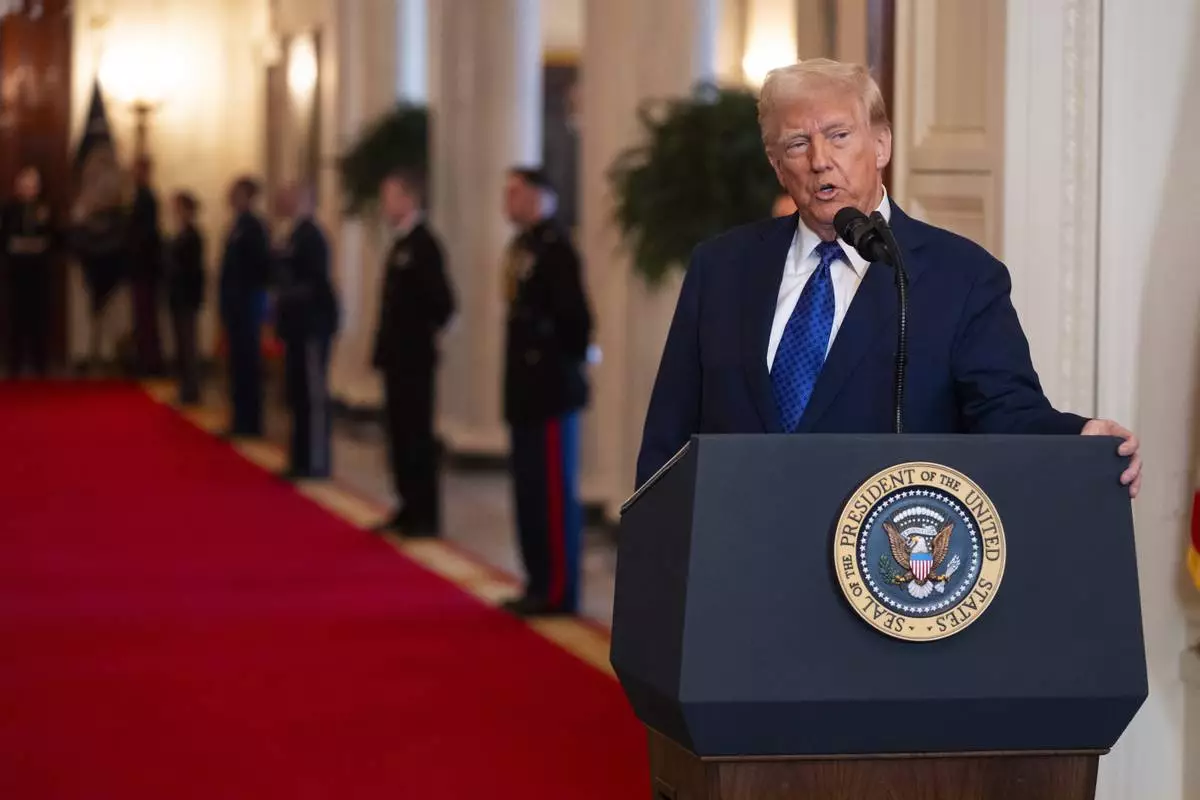
President Donald Trump speaks before signing the Laken Riley Act in the East Room of the White House, Wednesday, Jan. 29, 2025, in Washington. (AP Photo/Evan Vucci)
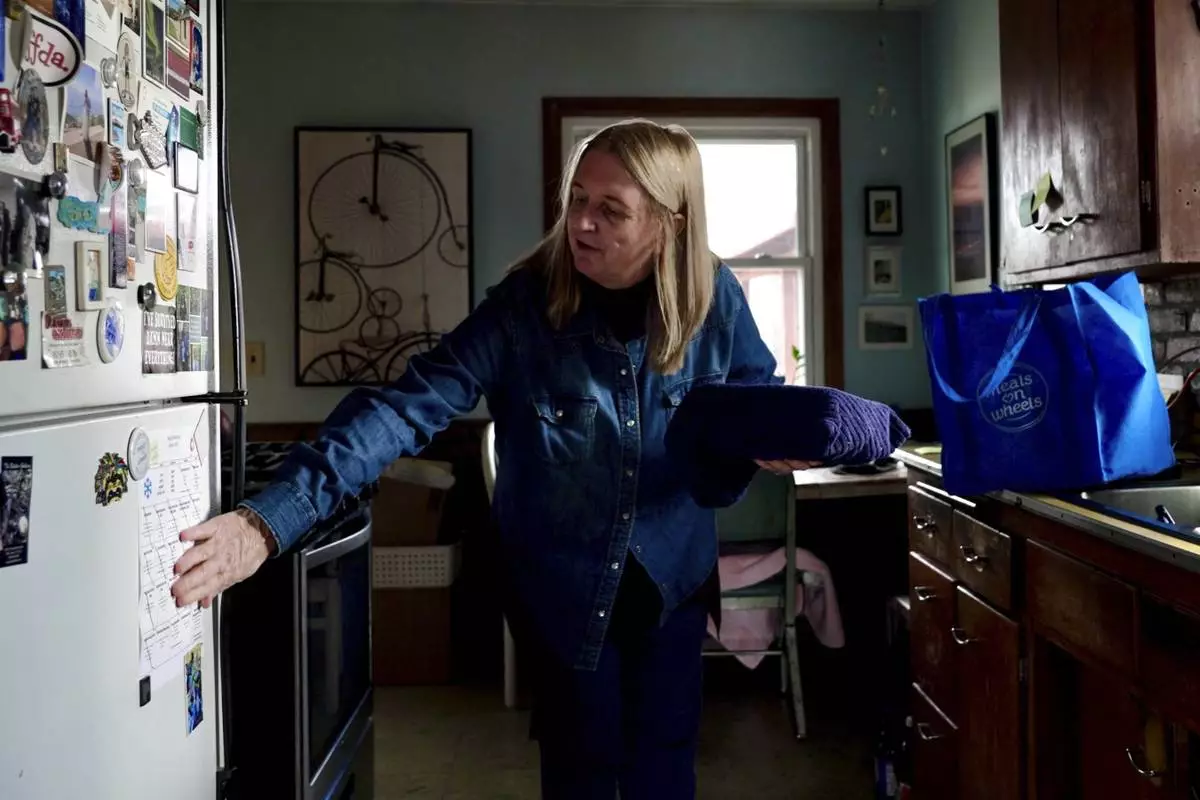
Barbara Teed unpacks a Meals on Wheels deliver for herself and her 30-year-old son Ryan, who has Down syndrome, on Wednesday, Jan. 29, 2025, in Bloomington, Minn. (AP photo/Mark Vancleave)
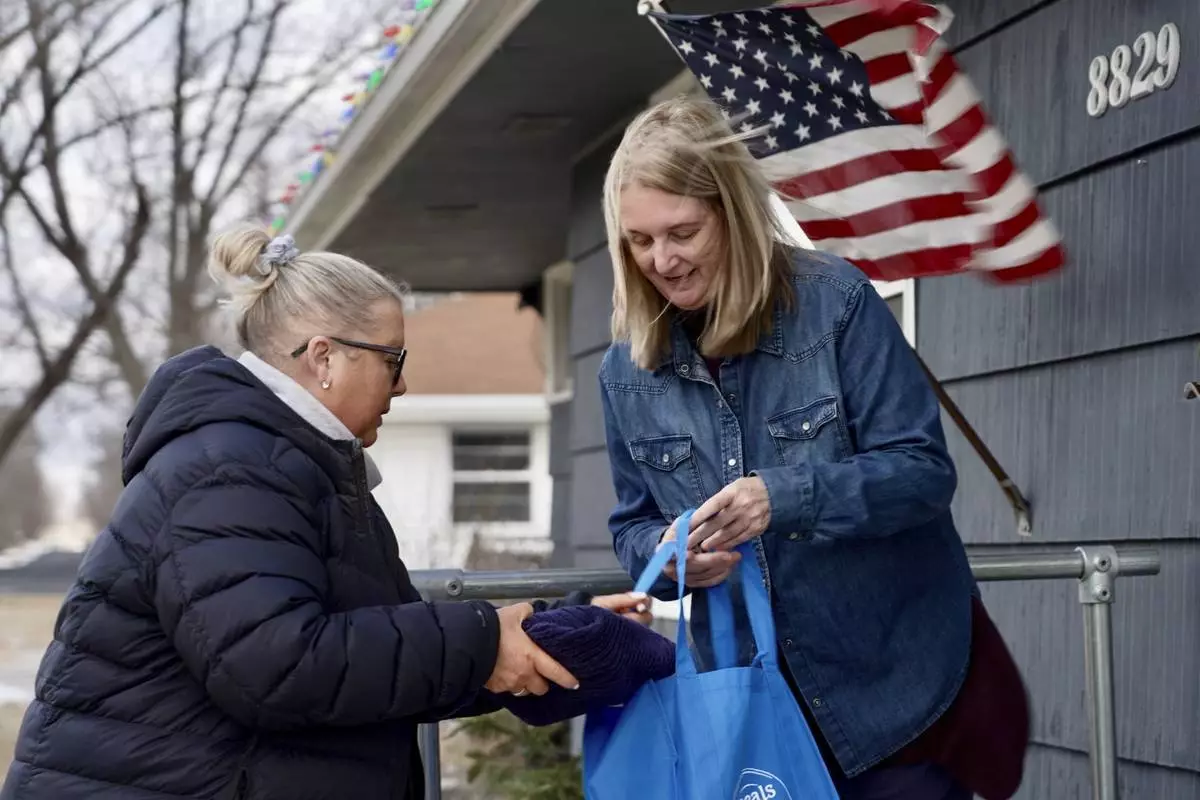
Bloomington and Eden Prairie Meals on Wheels Executive Director Wendy Vossen delivers meals for Barbara Teed and her 30-year-old son Ryan, who has Down syndrome, on Wednesday, Jan. 29, 2025, in Bloomington, Minn. (AP photo/Mark Vancleave)
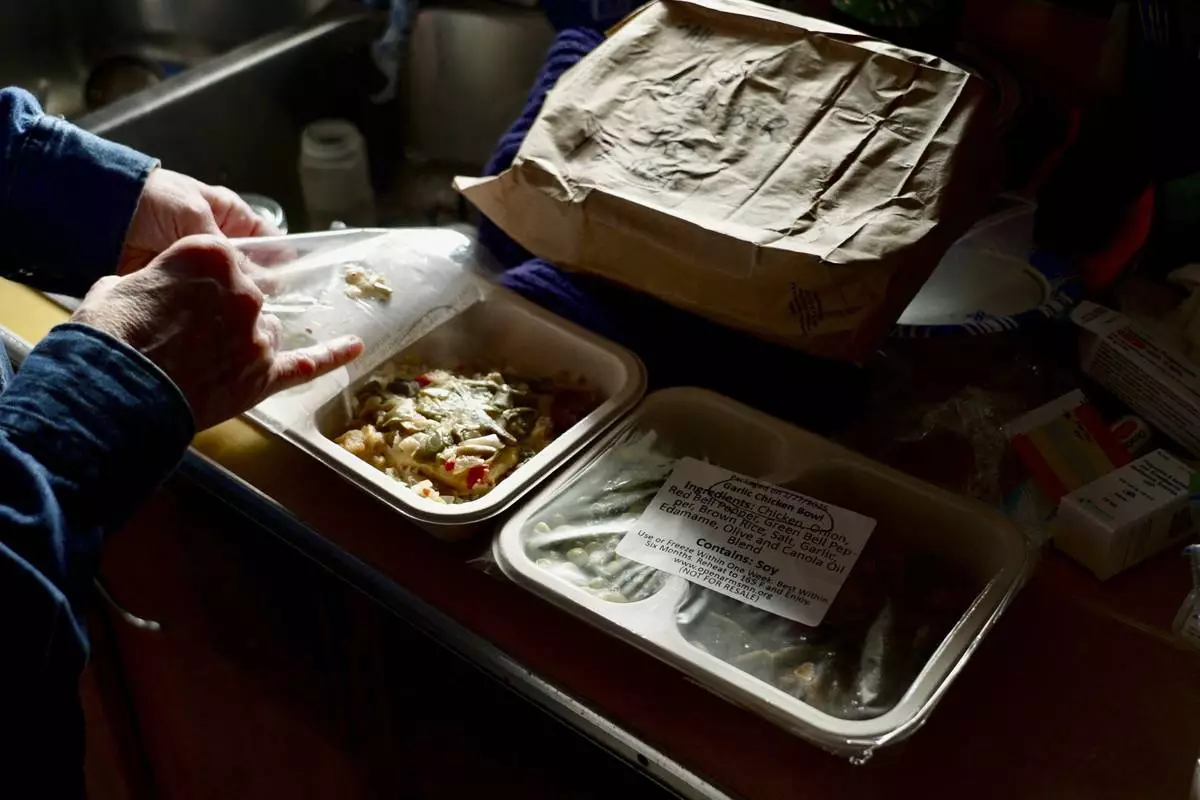
Barbara Teed unpacks a Meals on Wheels deliver for herself and her 30-year-old son Ryan, who has Down syndrome, on Wednesday, Jan. 29, 2025, in Bloomington, Minn. (AP photo/Mark Vancleave)

Barbara Teed thanks Jan Orcutt and Wendy Vossen for delivering food for herself and her 30-year-old son Ryan, who has Down syndrome, on Wednesday, Jan. 29, 2025, in Bloomington, Minn. (AP photo/Mark Vancleave)
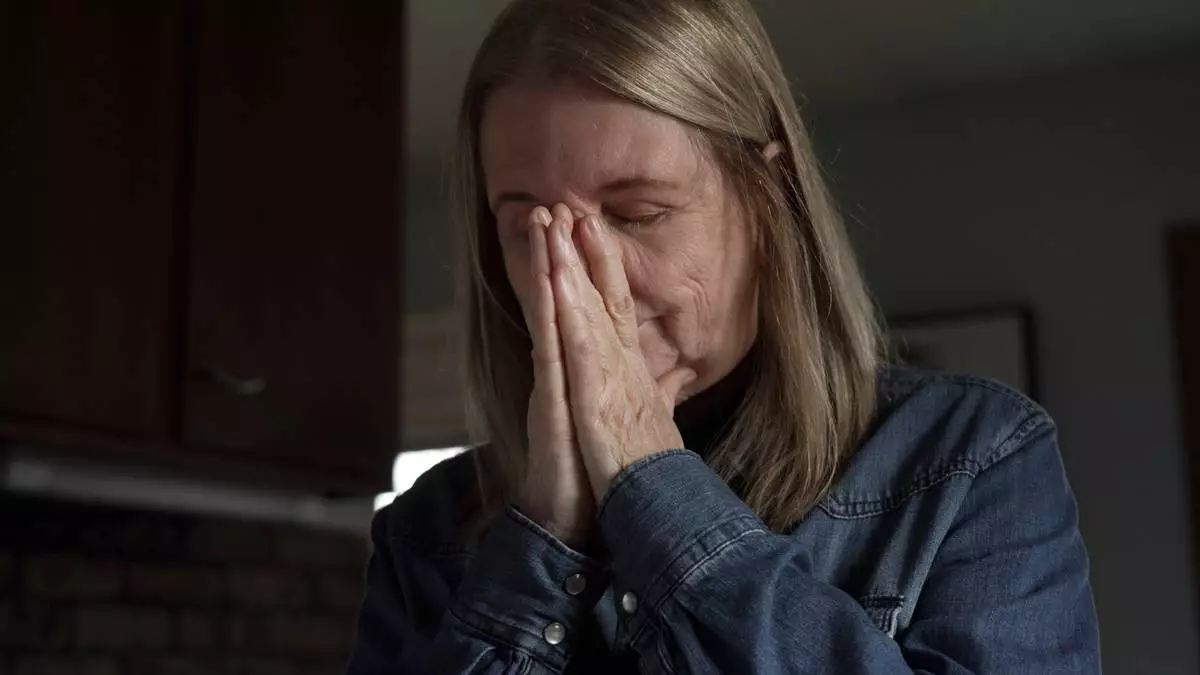
Barbara Teed unpacks a Meals on Wheels deliver for herself and her 30-year-old son Ryan, who has Down syndrome, on Wednesday, Jan. 29, 2025, in Bloomington, Minn. (AP photo/Mark Vancleave)
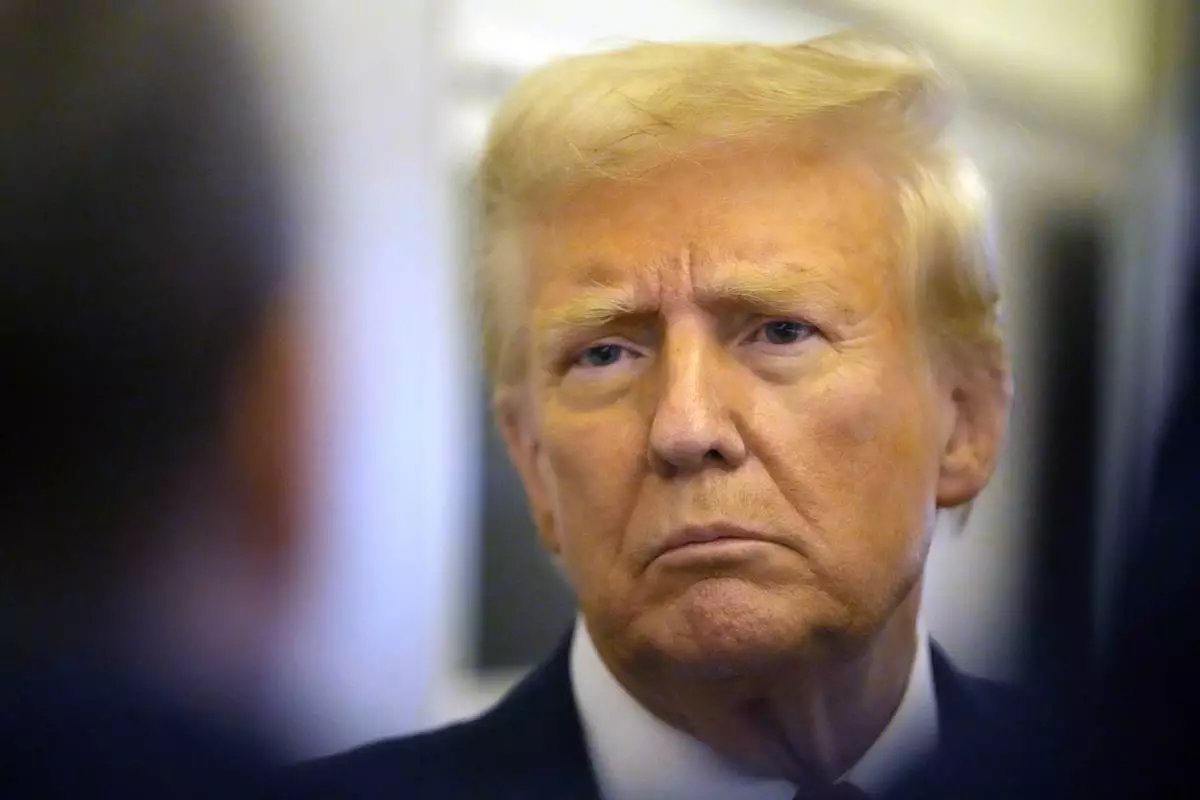
President Donald Trump speaks to reporters aboard Air Force One en route from Miami to Joint Base Andrews, Md., Monday, Jan. 27, 2025. (AP Photo/Mark Schiefelbein)
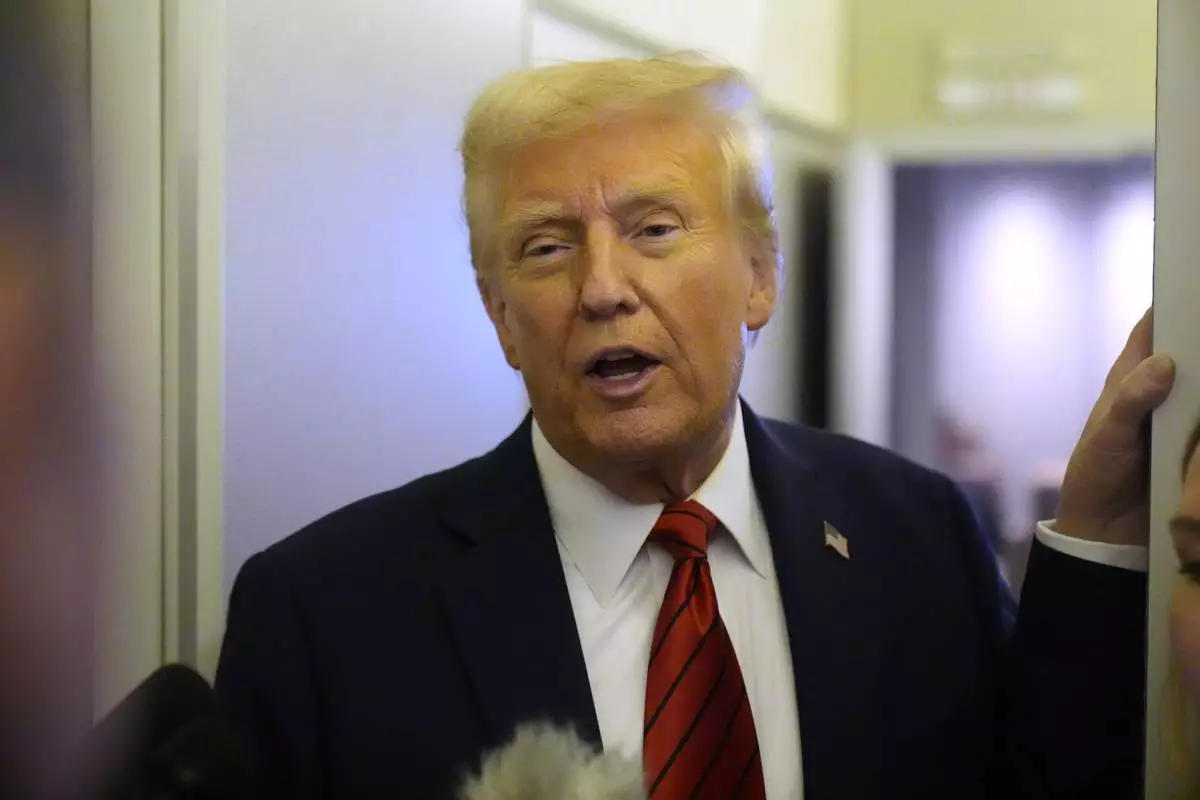
President Donald Trump speaks to reporters aboard Air Force One en route from Miami to Joint Base Andrews, Md., Monday, Jan. 27, 2025. (AP Photo/Mark Schiefelbein)
RIYADH, Saudi Arabia (AP) — Russia and the U.S. agreed Tuesday to start working towards ending the war in Ukraine and improving their diplomatic and economic ties, America's top diplomat said after talks that reflected an extraordinary about-face in U.S. foreign policy under President Donald Trump.
In an interview with The Associated Press, Secretary of State Marco Rubio said that the two side agreed broadly to pursue three goals: to restore staffing at their respective embassies in Washington and Moscow, to create a high-level team to support Ukraine peace talks, and to explore closer relations and economic cooperation.
He stressed, however, that the talks — which were also attended by his Russian counterpart, Sergey Lavrov — marked the beginning of a conversation, and more work needs to be done down the road.
No Ukrainian officials were present at the meeting, which came as the beleaguered country is slowly but steadily losing ground against more numerous Russian troops in a grinding war that began nearly three years ago.
President Volodymyr Zelenskyy said his country wouldn't accept any outcome from this week's talks since Kyiv wasn't taking part — and postponed his own trip scheduled for Wednesday.
European allies have also expressed concerns they are being sidelined.
Ties between Russia and the U.S. have fallen to their lowest level in decades during the war. Both embassies have been hit hard by expulsions of large numbers of diplomats over the course of several years, and the U.S., along with European nations, imposed a raft of sanctions on Russia. The allies have repeatedly expanded the measures to damage Moscow's economy.
“Should this conflict come to an acceptable end, the incredible opportunities that exist to partner with the Russians geopolitically on issues of common interest and frankly, economically on issues that hopefully will be good for the world and also improve our relations in the long term,” Rubio said.
His comments were further evidence of the remarkable U.S. reversal on Russia after years in which Trump’s predecessor, Joe Biden, led international efforts to isolate Moscow.
Tuesday's meeting was meant to pave the way for a summit between Trump and Russian President Vladimir Putin. After the talks wrapped, Putin’s foreign affairs advisor, Yuri Ushakov, told Russia’s Channel One that no date has been set yet for that summit but that it was “unlikely” to take place next week.
Speaking to reporters after the meeting, Lavrov said that in his view, “the conversation was very useful.” He mentioned the same three goals as Rubio and said that Washington and Moscow agreed to appoint representatives to carry out “regular consultations” on Ukraine.
“We not only listened, but also heard each other," Lavrov. "And I have reason to believe that the American side has started to better understand our position, which we have once again outlined in detail, using specific examples, based on President Putin’s repeated speeches.”
The meeting marked the most extensive contact between the two countries since Moscow’s Feb. 24, 2022, invasion. Lavrov and then-U.S. Secretary of State Antony Blinken talked briefly on the sidelines of a G-20 meeting in India nearly two years ago, but tensions remained high.
The recent U.S. diplomatic blitz on the war has sent Ukraine and key allies scrambling to ensure a seat at the table amid concerns that Washington and Moscow could press ahead with a deal that won’t be favorable to them.
Kyiv's absence at Tuesday's talks has rankled many Ukrainians, and France called an emergency meeting of European Union countries and the U.K. on Monday to discuss the war. Kyiv’s participation in such talks was a bedrock of U.S. policy under Biden, whose administration also led international efforts to isolate Russia over the war.
Rubio said Tuesday that ending the conflict would require concessions from all sides and that Europe would be a part of talks.
In talking about sanctions against Russia, Rubio noted that the measures have come from the U.S.'s allies as well.
“The European Union is going to have to be at the table at some point because they have sanctions as well that have been imposed,” he said.
French President Emmanuel Macron on Tuesday said he spoke by phone to Trump and Zelenskyy following Monday's European meeting.
“We seek a strong and lasting peace in Ukraine,” Macron wrote on social media platform X. “To achieve this, Russia must end its aggression, and this must be accompanied by strong and credible security guarantees for the Ukrainians,” he said and vowed to “work on this together with all Europeans, Americans, and Ukrainians.”
Peskov on Tuesday said that Putin has repeatedly expressed readiness for peace talks, and noted that a durable settlement of the conflict in Ukraine would be impossible without “a comprehensive consideration of security issues” in Europe.
The meeting at the Diriyah Palace in the Saudi capital of Riyadh also highlights de facto leader Crown Prince Mohammed bin Salman’s efforts to be a major diplomatic player, burnishing a reputation severely tarnished by the 2018 killing of Washington Post journalist Jamal Khashoggi.
Saudi state media described the talks as happening at the prince’s direction. Like the neighboring United Arab Emirates, the prince has maintained close relations to Russia throughout its war on Ukraine, both through the OPEC+ oil cartel and diplomatically as well.
Saudi Arabia has also helped in prisoner negotiations and hosted Zelenskyy for an Arab League summit in 2023.
Zelenskyy postponed his own trip to Saudi Arabia scheduled for this week, citing the fact that officials from his country were not invited to the talks. He suggested he wanted to avoid his visit being linked to them. He said his visit was rescheduled for March 10.
Rubio was accompanied by U.S. national security adviser Mike Waltz and special envoy Steve Witkoff, while Lavrov sat next to Ushakov. Saudi Foreign Minister Faisal bin Farhan and national security adviser Musaed al Alban joined Rubio, Lavrov and others for the start of the meeting.
Meanwhile, Russia continued to pummel Ukraine with drones, according to Kyiv's military. The Ukrainian air force said Russian troops launched a barrage of 176 drones at Ukraine overnight, most of which were destroyed or disabled by jamming.
One Russian drone struck a residential building in Dolynska in the Kirovohrad region, wounding a mother and her two children and prompting an evacuation of 38 apartments, the regional administration reported. Four more residential buildings were damaged by drone debris in the Cherkasy region of Ukraine, according to local officials.
Litvinova reported from Tallinn, Estonia. Associated Press writers Baraa Anwer in Riyadh, Saudi Arabia, Jon Gambrell in Dubai, United Arab Emirates, Illia Novikov in Kyiv, Ukraine, and Sylvie Corbet in Paris contributed to this report.
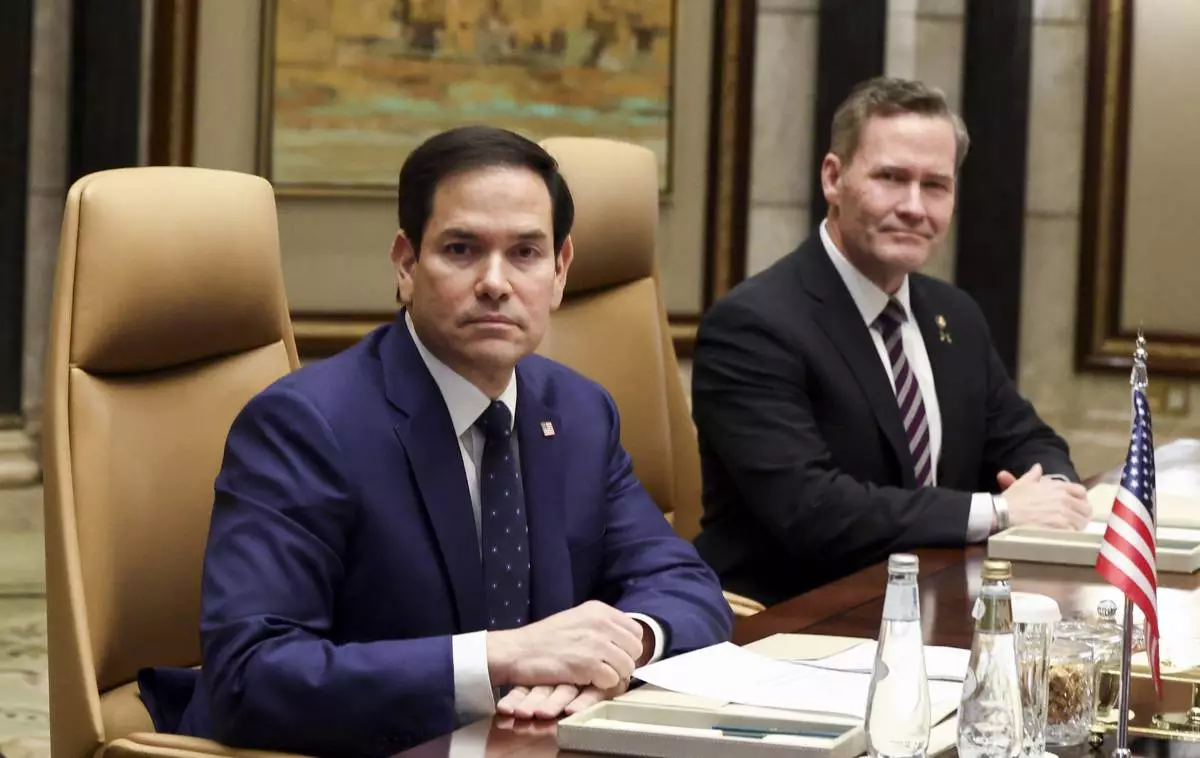
U.S. Secretary of State Marco Rubio, center, sits next to U.S. National Security Advisor Mike Waltz during a meeting with Saudi Foreign Minister Prince Faisal bin Farhan Al Saud, Saudi National Security Advisor Mosaad bin Mohammad Al-Aiban, Russian Foreign Minister Sergei Lavrov and Russian President Vladimir Putin's foreign policy advisor Yuri Ushakov, at Diriyah Palace, in Riyadh, Saudi Arabia, Tuesday, Feb. 18, 2025. (Evelyn Hockstein/Pool Photo via AP)
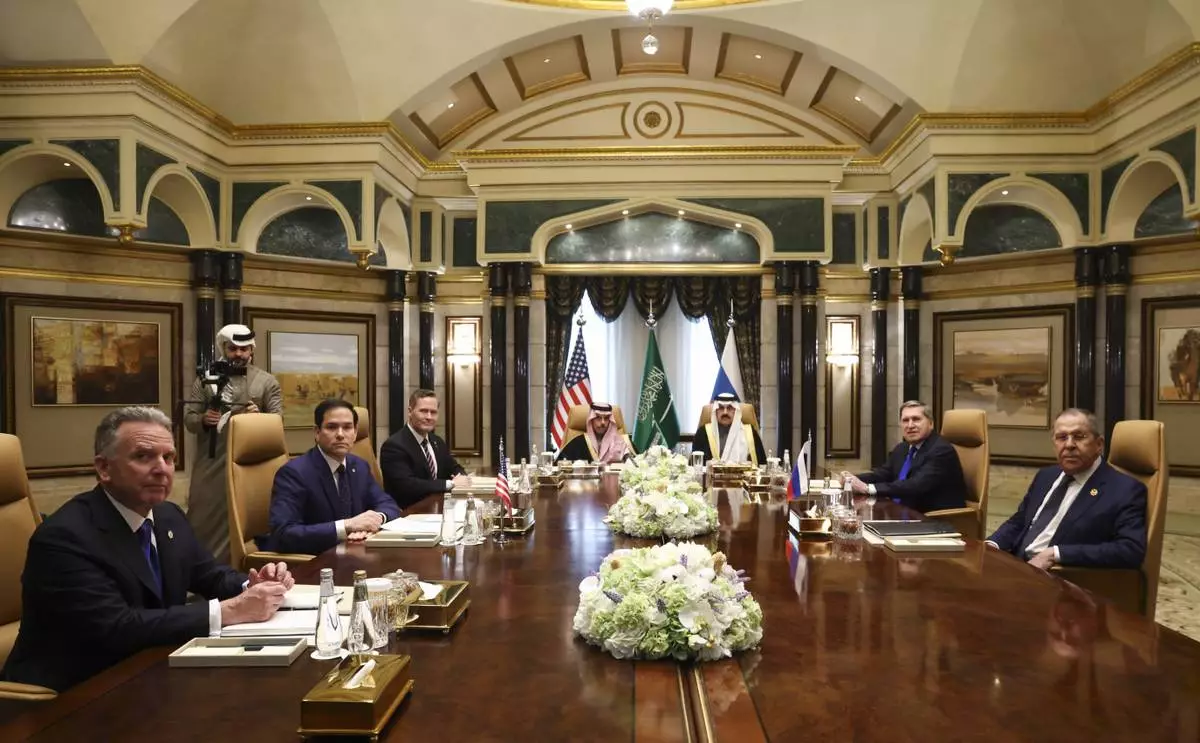
U.S. Secretary of State Marco Rubio, second left, meets with Saudi Foreign Minister Prince Faisal bin Farhan Al Saud, Saudi National Security Advisor Mosaad bin Mohammad Al-Aiban, U.S. National Security Advisor Mike Waltz, third left, U.S. Middle East envoy Steve Witkoff, left, Russian Foreign Minister Sergei Lavrov, right, and Russian President Vladimir Putin's foreign policy advisor Yuri Ushakov, second right, at Diriyah Palace, in Riyadh, Saudi Arabia, Tuesday Feb. 18, 2025. (Evelyn Hockstein/Pool Photo via AP)
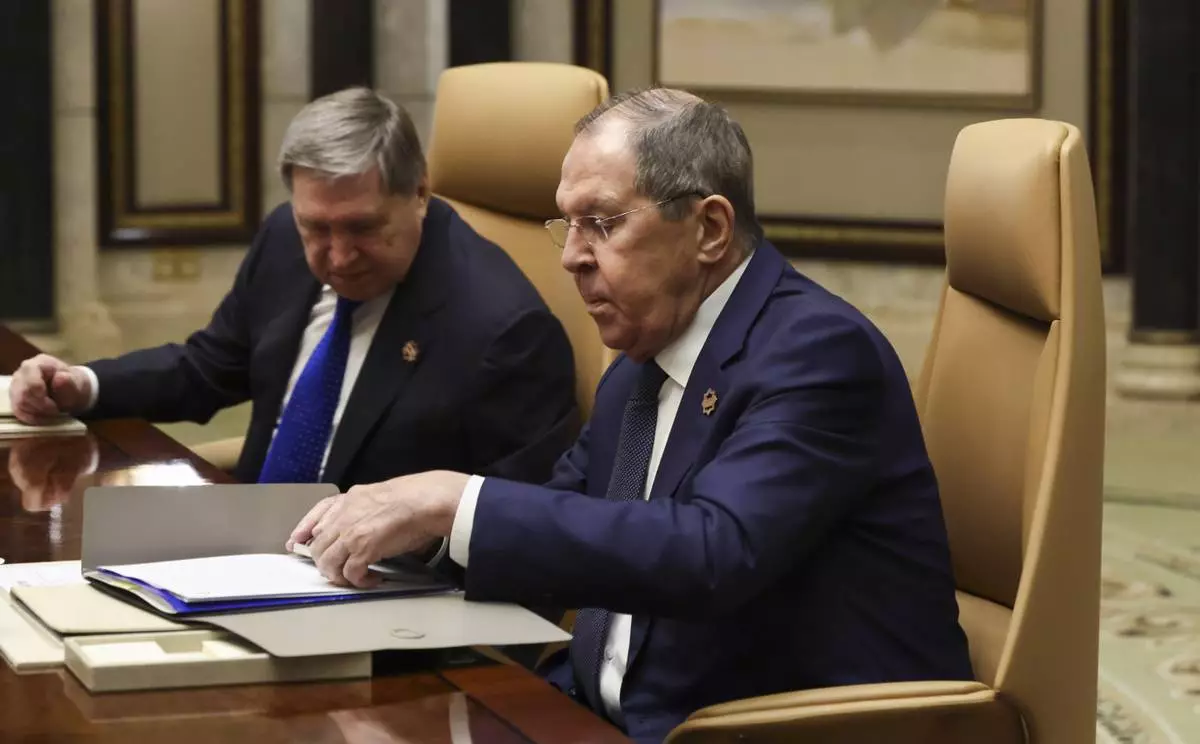
Russian Foreign Minister Sergei Lavrov, right, sits next to Russian President Vladimir Putin's foreign policy advisor Yuri Ushakov during a meeting with U.S. Secretary of State Marco Rubio, U.S. National Security Advisor Mike Waltz and U.S. Middle East envoy Steve Witkoff, Saudi Foreign Minister Prince Faisal bin Farhan Al Saud and Saudi National Security Advisor Mosaad bin Mohammad Al-Aiban, at Diriyah Palace, in Riyadh, Saudi Arabia, Tuesday, Feb. 18, 2025. (Evelyn Hockstein/Pool Photo via AP)
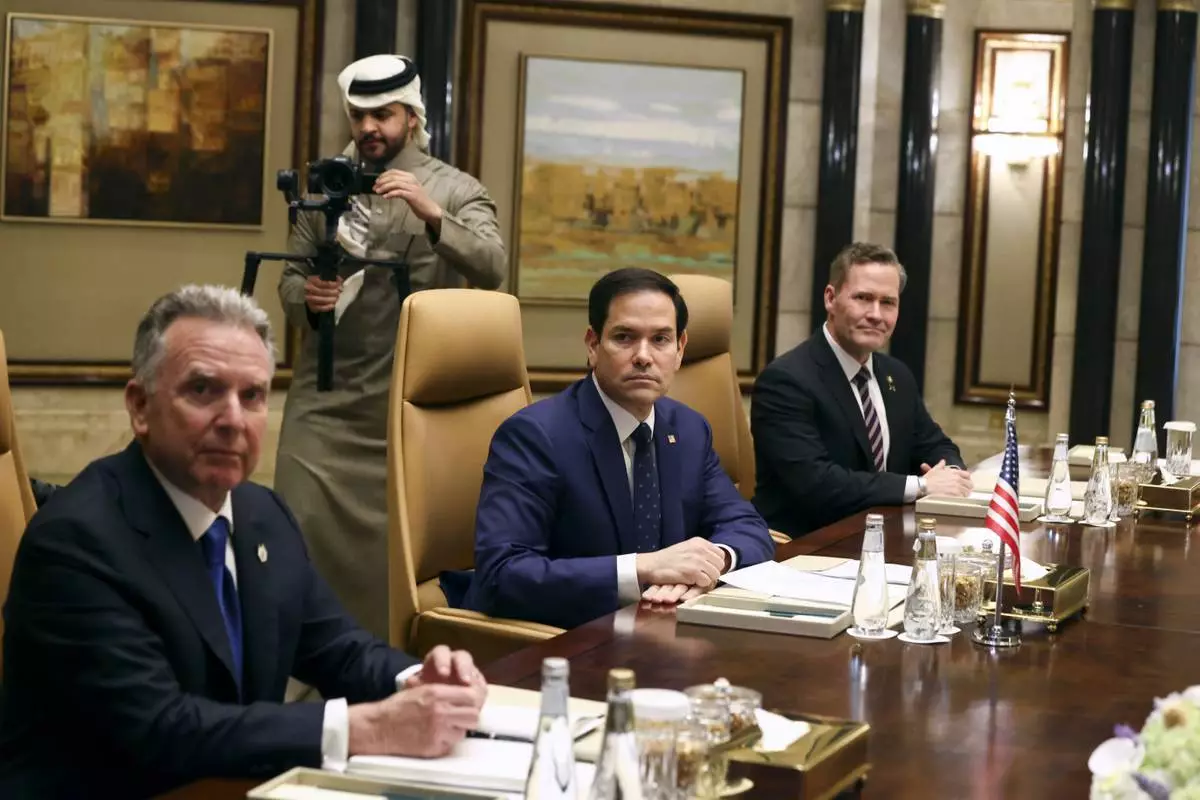
U.S. Secretary of State Marco Rubio, center, sits next to U.S. National Security Advisor Mike Waltz, right, and U.S. Middle East envoy Steve Witkoff during a meeting with Saudi Foreign Minister Prince Faisal bin Farhan Al Saud, Saudi National Security Advisor Mosaad bin Mohammad Al-Aiban, Russian Foreign Minister Sergei Lavrov and Russian President Vladimir Putin's foreign policy advisor Yuri Ushakov, at Diriyah Palace, in Riyadh, Saudi Arabia, Tuesday, Feb. 18, 2025. (Evelyn Hockstein/Pool Photo via AP)
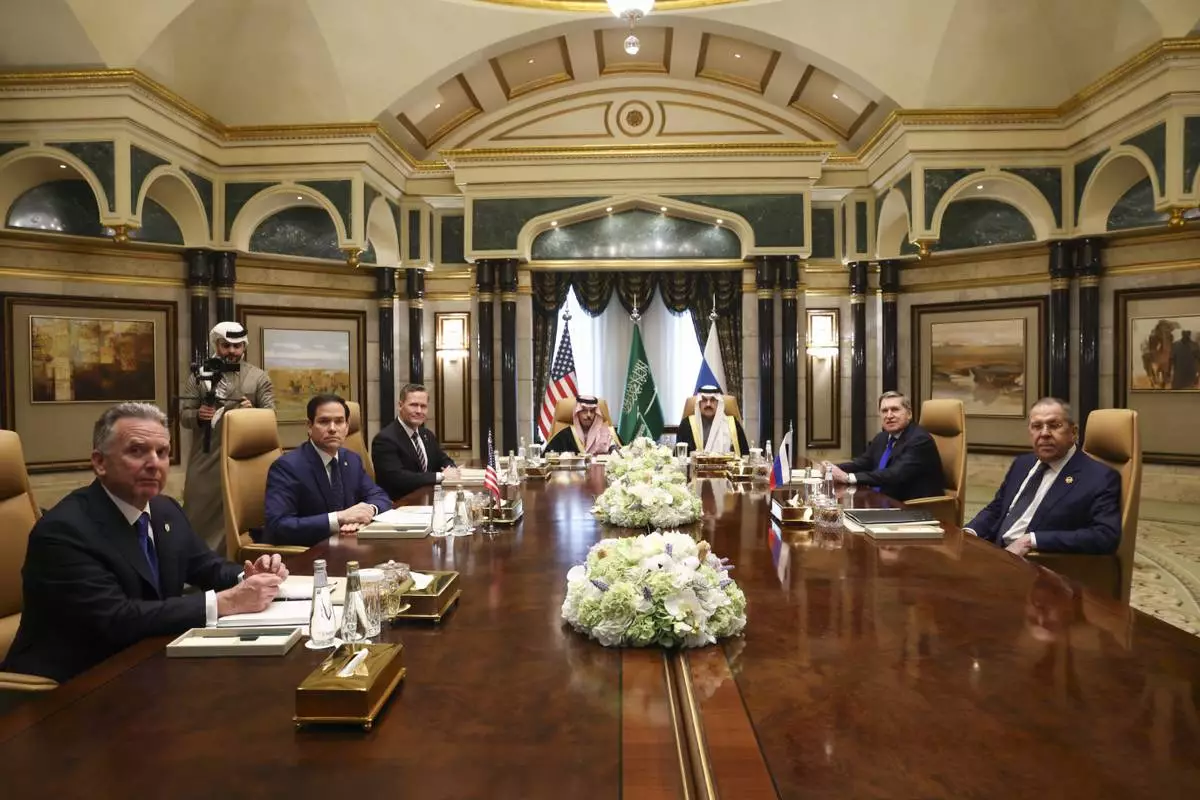
U.S. Secretary of State Marco Rubio, second left, meets with Saudi Foreign Minister Prince Faisal bin Farhan Al Saud, Saudi National Security Advisor Mosaad bin Mohammad Al-Aiban, U.S. National Security Advisor Mike Waltz, U.S. Middle East envoy Steve Witkoff, Russian Foreign Minister Sergei Lavrov, right, and Russian President Vladimir Putin's foreign policy advisor Yuri Ushakov, at Diriyah Palace, in Riyadh, Saudi Arabia, Tuesday Feb. 18, 2025. (Evelyn Hockstein/Pool Photo via AP)
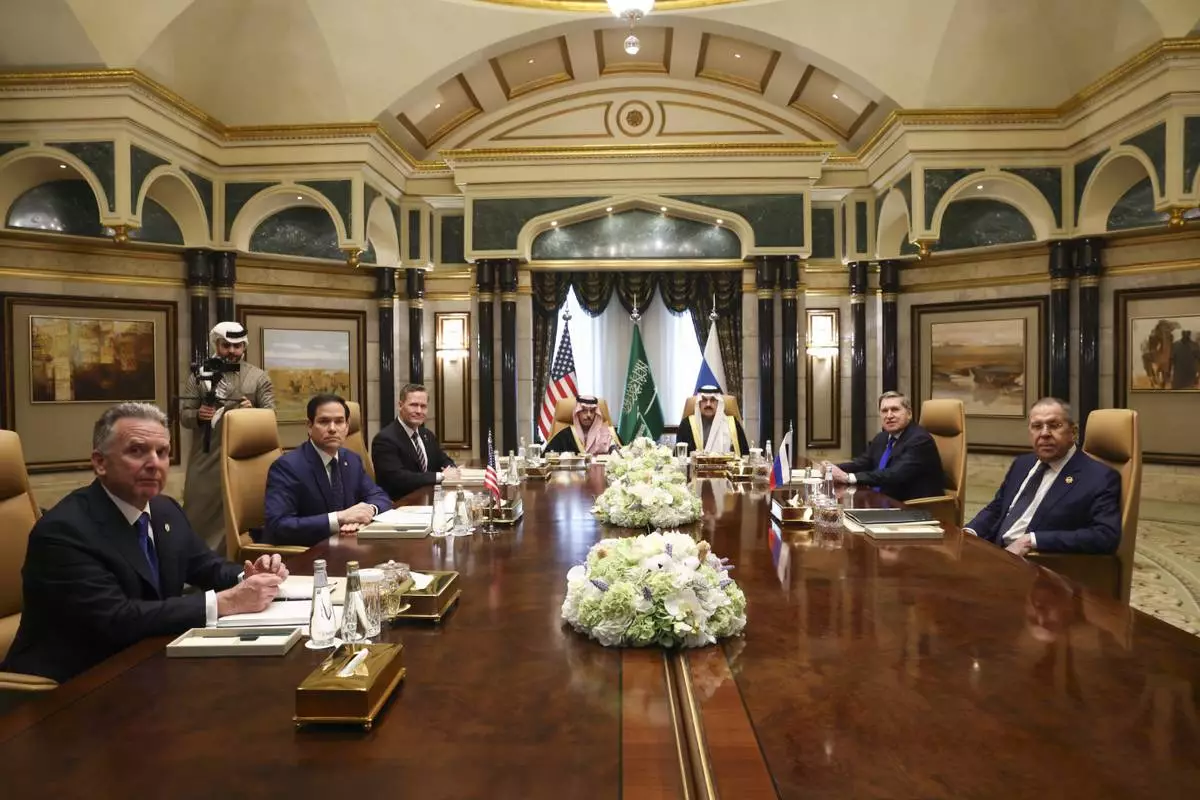
U.S. Secretary of State Marco Rubio, second left, meets with Saudi Foreign Minister Prince Faisal bin Farhan Al Saud, Saudi National Security Advisor Mosaad bin Mohammad Al-Aiban, U.S. National Security Advisor Mike Waltz, U.S. Middle East envoy Steve Witkoff, Russian Foreign Minister Sergei Lavrov, right, and Russian President Vladimir Putin's foreign policy advisor Yuri Ushakov, at Diriyah Palace, in Riyadh, Saudi Arabia, Tuesday Feb. 18, 2025. (Evelyn Hockstein/Pool Photo via AP)

CORRECTS THE IDENTITY OF PERSON ON LEFT - Kirill Dmitriev, the head of the Russian Direct Investment Fund, right, walks with an unidentified member of his team across the Ritz Carlton hotel in Riyadh, Saudi Arabia, Tuesday, Feb. 18, 2025. (AP Photo/Baraa Anwer)
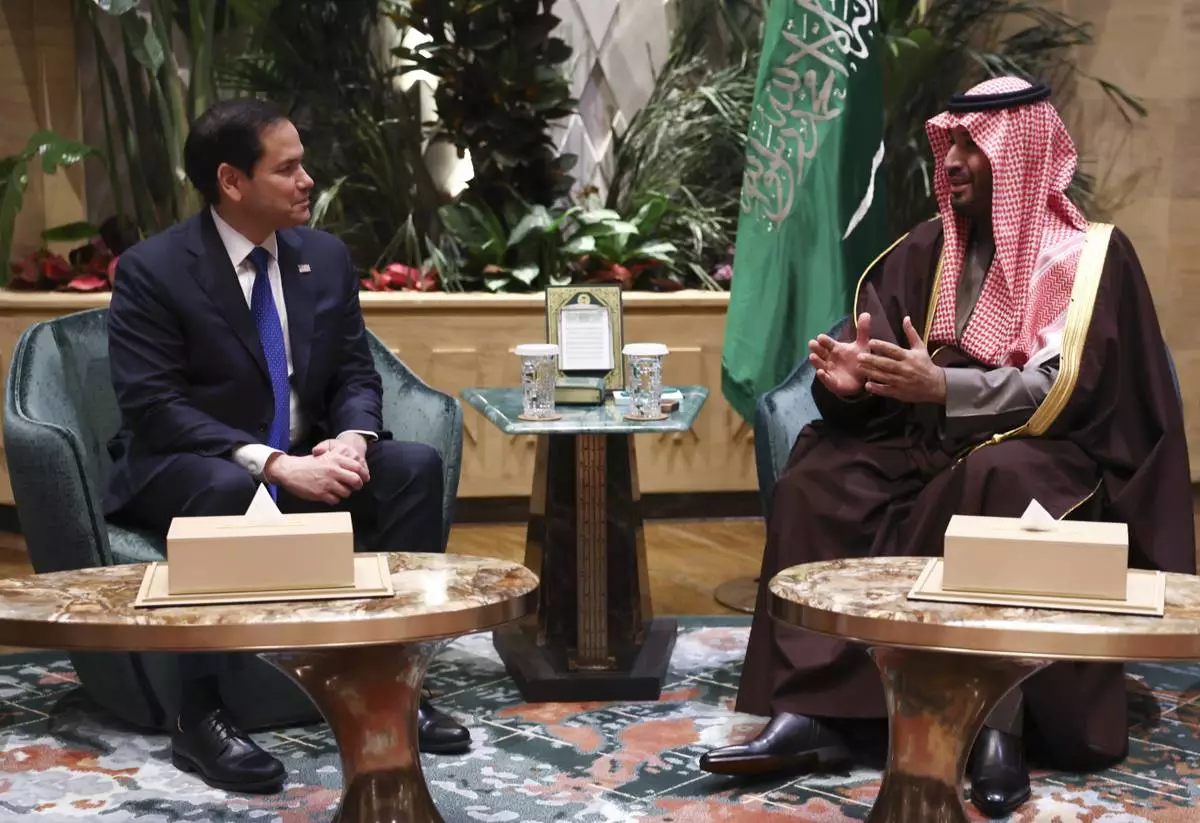
U.S. Secretary of State Marco Rubio, left, meets with Saudi Arabia's Crown Prince Mohammed bin Salman, right, in Riyadh, Saudi Arabia, Monday Feb. 17, 2025. (Evelyn Hockstein/Pool Photo via AP)
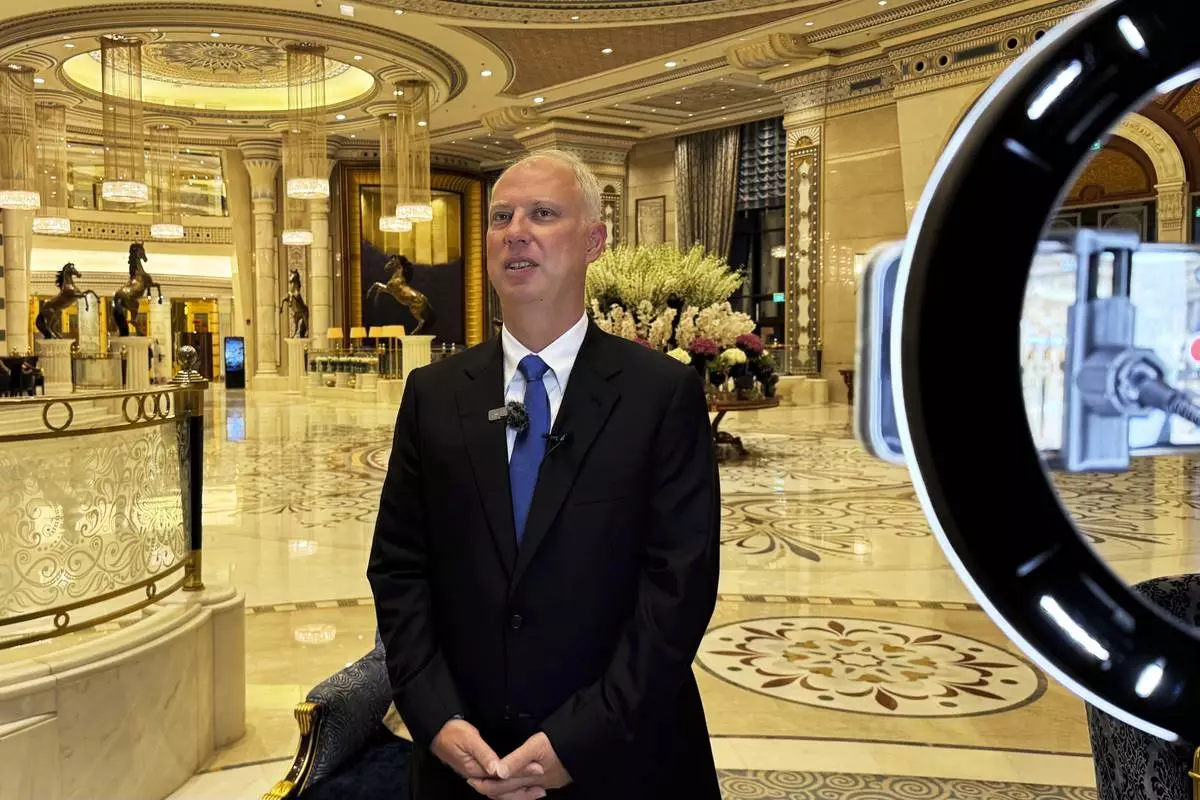
Kirill Dmitriev, the head of the Russian Direct Investment Fund, speaks to journalists at the Ritz Carlton hotel in Riyadh, Saudi Arabia, Tuesday, Feb. 18, 2025. (AP Photo/Baraa Anwer)
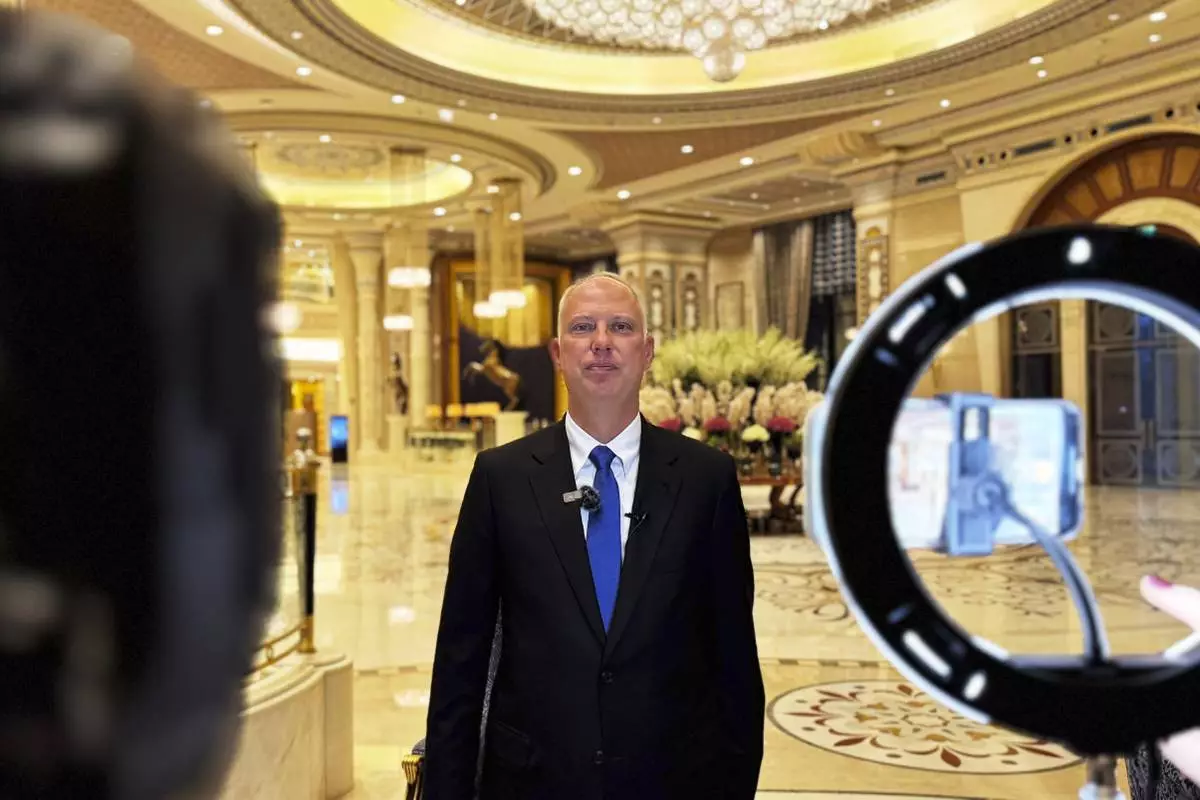
Kirill Dmitriev, the head of the Russian Direct Investment Fund, speaks to journalists at the Ritz Carlton hotel in Riyadh, Saudi Arabia, Tuesday, Feb. 18, 2025. (AP Photo/Baraa Anwer)
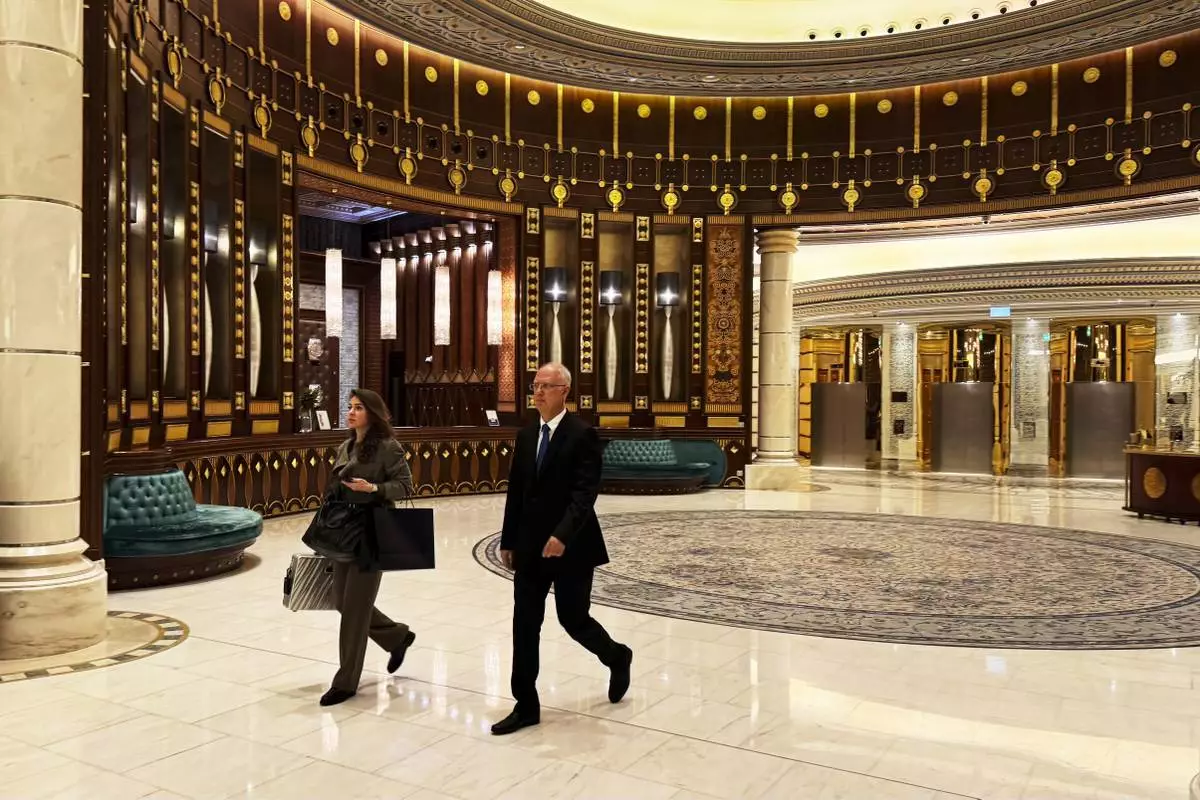
Kirill Dmitriev, the head of the Russian Direct Investment Fund, right, and Maria Medvedeva, the deputy CEO for external communication for the fund, walk across the Ritz Carlton hotel in Riyadh, Saudi Arabia, Tuesday, Feb. 18, 2025. (AP Photo/Baraa Anwer)











